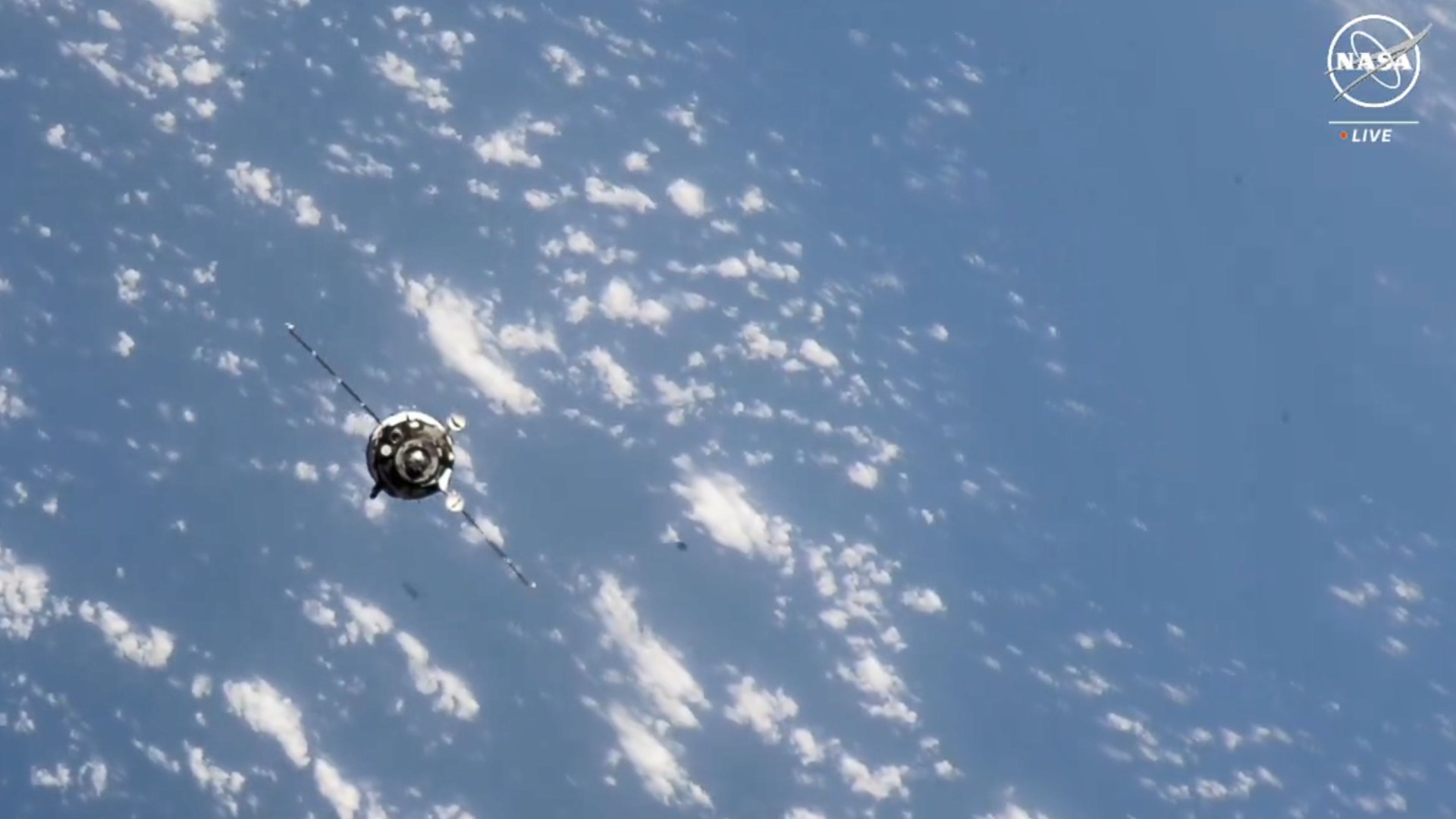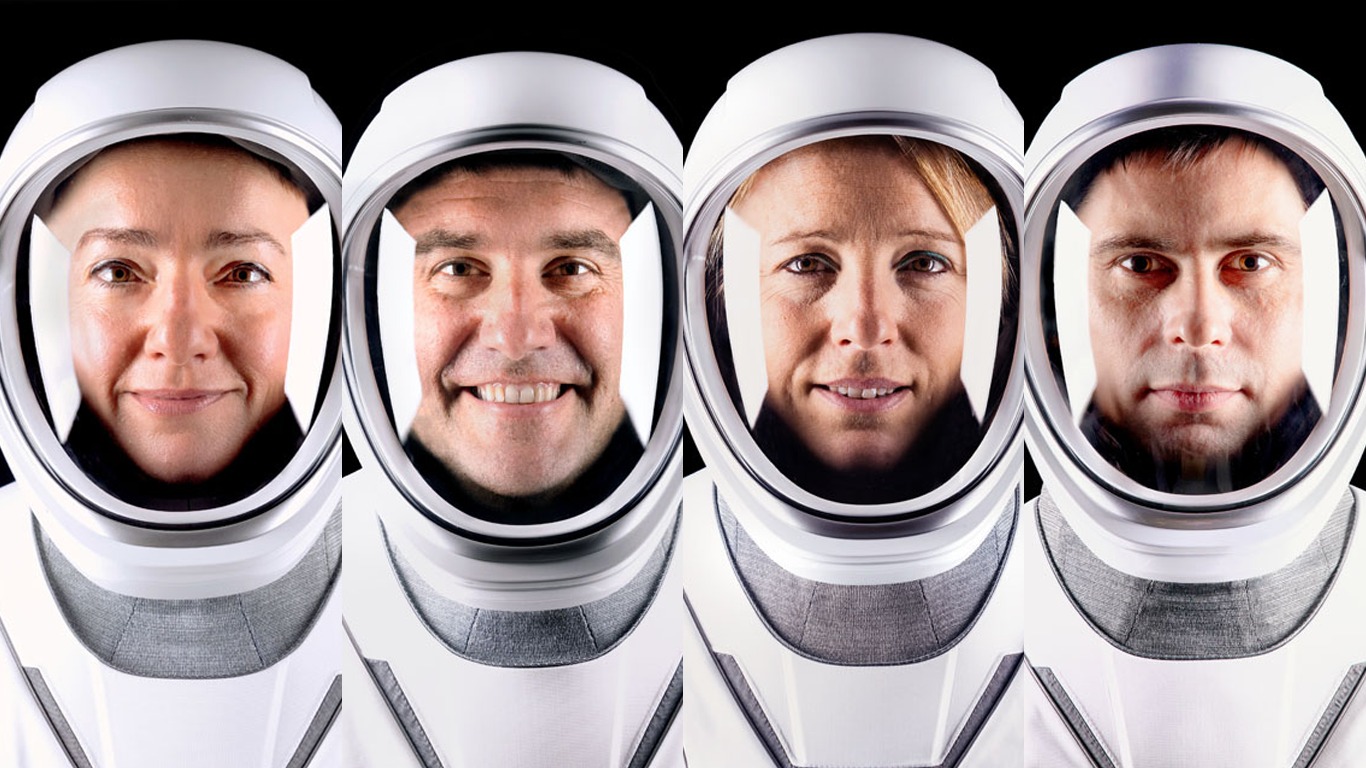Watch live as Russian Soyuz spacecraft carrying 3 spaceflyers departs the ISS tonight
The Soyuz is scheduled to undock from the ISS at 11:54 p.m. ET tonight (April 5).
A NASA astronaut, a Russian cosmonaut and the first female Belarusian in space will leave the space station late tonight (April 5), and you can watch the action live.
NASA astronaut Loral O'Hara, Roscosmos cosmonaut Oleg Novitskiy and spaceflight participant Marina Vasilevskaya of Belarus will leave the International Space Station (ISS) at 11:54 p.m. EDT (0354 GMT on April 6), if all goes according to plan. Key events of the undocking and landing will be carried here on Space.com, via NASA Television.
Coverage begins at 8 p.m. EDT tonight (0000 GMT on April 6) with crew farewells and hatch closure as the three departing crew members get into their Soyuz MS-24 spacecraft. Undocking coverage will begin at 11:30 p.m. EDT Friday (0330 GMT on April 6). These times could change due to operational constraints, however.
Related: 3 spaceflyers arrive at the ISS aboard Russian Soyuz spacecraft
O'Hara will wrap up 204 days in space, while Novitskiy and Vasilevskaya are completing a short mission that began on March 23 alongside NASA astronaut Tracy Caldwell Dyson, who will remaining on the ISS for a regular six-month rotation.
The March 23 liftoff took place two days after a rare abort of the Soyuz spacecraft during launch from Kazakhstan, traced to a battery issue that was swiftly resolved.
Should the undocking proceed on time, NASA expects the landing will take place Saturday (April 6) at 3:17 a.m. EDT (0717 GMT) near Karaganda, Kazakhstan. The deorbit burn is scheduled for Saturday at 2:23 a.m. EDT (0623 GMT), with coverage on NASA Television beginning at 2 a.m. EDT (0600 GMT).
Breaking space news, the latest updates on rocket launches, skywatching events and more!
"After landing, the three crew members will fly on a helicopter from the landing site to the recovery staging city of Karaganda, Kazakhstan. O'Hara then will depart back to Houston," NASA officials wrote of their post-landing procedures.
Vasilevskaya is the first citizen of the Republic of Belarus to reach space. Pyotr Klimuk and Vladimir Kovalyonok, however, hailed from the former Belarus Soviet Socialist Republic (SSR) and had their first spaceflights in 1973 and 1977, respectively.
The Soyuz MS-25 that carried O'Hara, Novitskiy and Vasilevskaya to space March 23 will remain at the ISS to ferry home another crew. Alongside Dyson, Russian cosmonauts Oleg Kononenko and Nikolai Chub will take the other two seats after completing their one-year mission this fall.
Also docked to the ISS is the SpaceX Crew-8 Dragon spacecraft with the remaining astronauts of Expedition 71: NASA astronauts Matthew Dominick, Michael Barrett and Jeannette Epps and Russian cosmonaut Alexander Grebenkin. They launched on March 4 for an expected half-year stay in space.

Elizabeth Howell (she/her), Ph.D., was a staff writer in the spaceflight channel between 2022 and 2024 specializing in Canadian space news. She was contributing writer for Space.com for 10 years from 2012 to 2024. Elizabeth's reporting includes multiple exclusives with the White House, leading world coverage about a lost-and-found space tomato on the International Space Station, witnessing five human spaceflight launches on two continents, flying parabolic, working inside a spacesuit, and participating in a simulated Mars mission. Her latest book, "Why Am I Taller?" (ECW Press, 2022) is co-written with astronaut Dave Williams.


